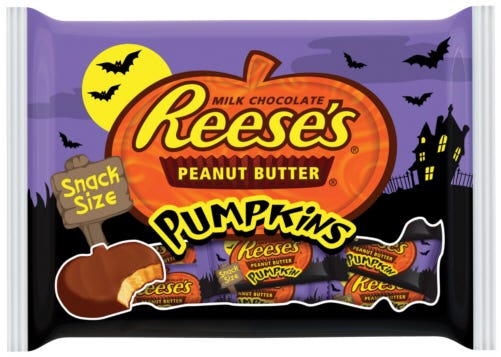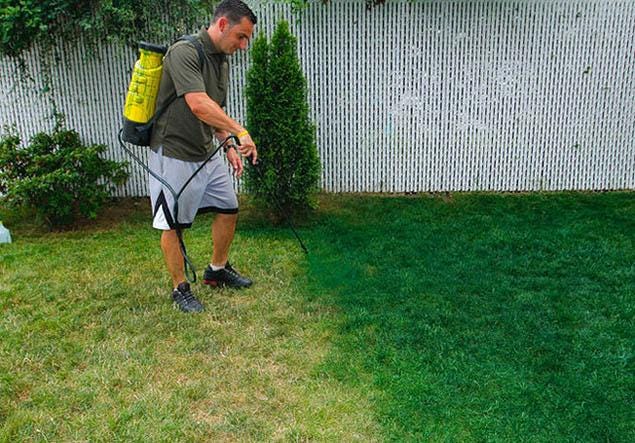So What, Who Cares (vol 1, issue 25) How California finally figured out that maybe it needs to track water use

Happy last day of September/first day of October! Naturally, the San Francisco Bay Area is set to broil, but the rest of you lucky so-and-sos are now thick into meteorological autumn and astronomical autumn. I look forward to the day when we can agree on a third societal metric for autumn based on NFL preseason hoopla and/or the first sighting of Reese's Halloween Pumpkins in the stores.
A little housecleaning: I've written a one-month progress report on So What, Who Cares? as a editorial product, so there's that if you want to find out what I'm thinking about this thing.
*

Because our megadrought shows no signs of surcease, at least 14 California communities are literally on the brink of waterlessness, among them Parkwood, California -- though residents there are still watering their lawns. The notable part of the story is not the choice to eschew drinking water in favor of sustaining a wholly artificial and environmentally inappropriate ecosystem: It's that this is the first year the State Water Resources Control Board has been tracking communities that are about to run out of water, and we are now four years into a drought.
Another notable development: Water agencies across the state may soon switch to a daily water allocation system, where every household is assigned a limit on how many gallons of water they can use daily. Although #droughtshaming is a legitimate social phenomenon in California, it remains to be seen if a cheery, can-do #droughthacking movement will take off. (If it does, kindly credit me for the hashtag.)
So what? There is some debate over how effective water rationing is, and there is a related debate over whether the best way to enforce water-use limits is through positive reinforcement (paying people to rip up their lawn) or negative reinforcement (fines for blowing past your limits, with higher water use garnering higher fines). But the main point here is that the idea of local or state government rationing water is not up for debate; we're merely quibbling over policy now.
Who cares? The idea that access to water is a basic right which governments should manage responsibly is not a universal given in the U.S. The civic management of the drought in California lays all sorts of policy groundwork that could reverberate across the rest of the west as we head deeper into the megadrought. Water policy nerds are about to get their moment to shine.
*
My favorite press campaign was for the movie X-Men Origins: Wolverine, just because you could see every calculation behind how the actors helming the movie were deployed: Ryan Reynolds was dispatched to Men's Health so he could talk about his abs in a totally bro-platonic way; Hugh Jackman was forced to pretend daytime TV was fun because he is catnip to what bloggers call "the minivan majority" ... and Liev Schreiber was sent to charm the listeners of NPR. National Public Radio! I still snicker when I imagine someone making the argument that NPR listeners are the great movers and shakers of the modern America cinema audience.
Anyway, I've since kept half an eye on concerted press campaigns for TV shows and movies because I like trying to figure out who's the mark and what's the angle. So I'm fascinated by the recent press blitz Anthony Bourdain's been part of: He's preaching the gospel of innovation over at Fast Company and he's reinventing the food-TV genre while also reviving CNN's reputation over at the Hollywood Reporter.

So what? While it's fascinating to contemplate what happens when the professional fooderati put political activism on the menu -- this piece on chef John Currance touches on how the culinary elite is in an extraordinary position to influence American life -- I'm still more interested in why CNN's publicity arm has chosen to push Bourdain and Parts Unknown as the public face of the channel. Perhaps CNN is choosing to reposition itself as the network that the culterati watch -- and it's hoping those viewers translate to a better advertising rate. After all, Fox News has won the crowd trophy.
Who cares? People who watch TV ratings like sports fans watch football? Actually, how a so-called news channel positions itself says a lot about how it defines its news. (PBS is coming under fire right now for its programming choices being insufficiently public-minded. ) CNN had great ratings in Q1 this year thanks to its obsessive Malaysia Flight 370 coverage, but that can't sustain a network or burnish its cred.
Serving the audience? Who said anything about that?
*
Your poop culture note of the day: I have been listening to The State alum Kevin Allison's podcast, RISK! and this week featured a story from Ilana Glazer about electing to soil her pants at a wine party. So what better way to awkwardly segue into this recommendation? The Atlantic Cities' piece on what the zoos of the U.S.A. do with their animal poop is a fascinating read.
*
Does the thought of a grown woman choosing to just let it all go at a party make you do a double-take? Tell me via email or Twitter. Always let me know what you think about So What, Who Cares? If you really like it, tell a friend to subscribe.

